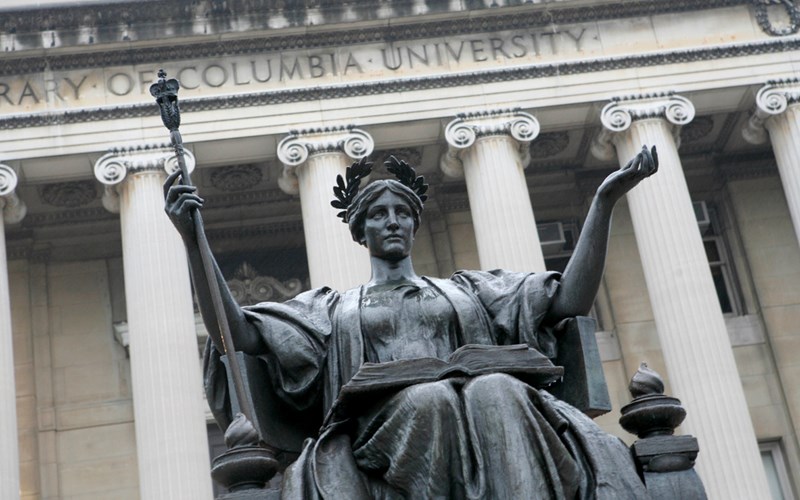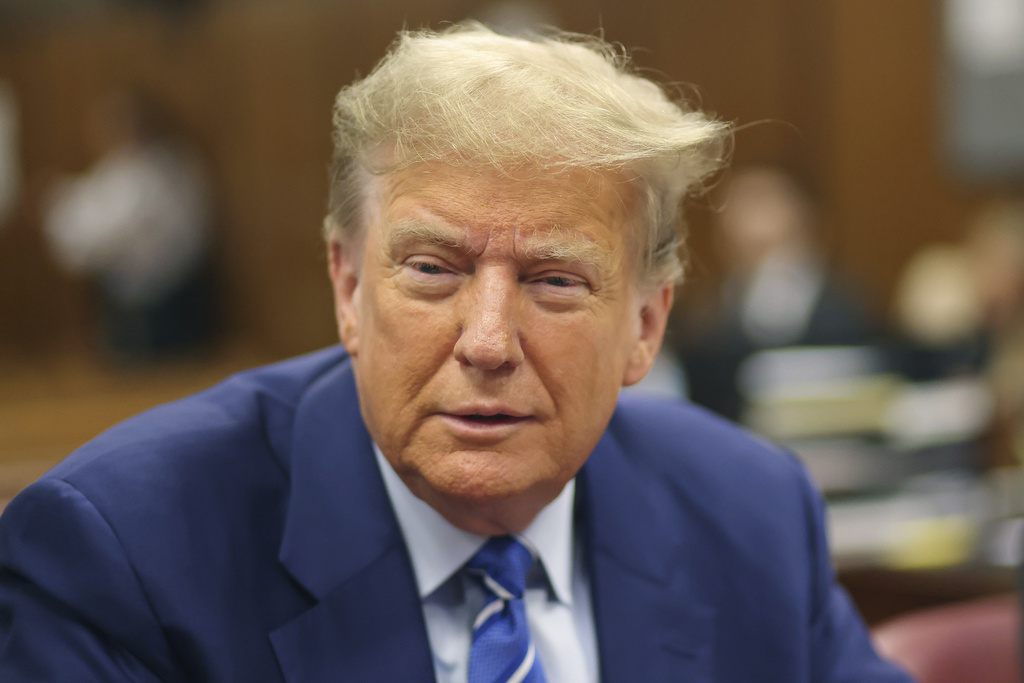Nemat Shafik, Columbia's leader, was originally asked to testify at the House Education and Workforce Committee's hearing in December, but she declined, citing scheduling conflicts.
Hours before her make-up appearance on Capitol Hill, students supporting Palestinians gathered for a protest on Columbia's campus. Organizers included two groups that were previously suspended by Columbia over unauthorized protests, Students for Justice in Palestine and Jewish Voice for Peace.
The protest could become fresh fodder for Republicans. It fell outside the hours designated under new rules Columbia adopted in February. At a news conference before Shafik's testimony, Rep. Virginia Foxx, R-N.C., said there's “activity going on on the campus this morning that shouldn’t be allowed.”
Foxx and Rep. Elise Stefanik, R-N.Y., appeared with Jewish students from Columbia who said they have faced threats and physical confrontation. They described a student who had Star of David necklaces torn off while walking to class and taunts from students who say “the Holocaust wasn't that special.”
Stefanik said Republicans will hold Columbia accountable for failing to protect students.
“Despite claims otherwise, Columbia’s leadership refuses to enforce their own policies and condemn Jewish hatred on campus, creating a breeding ground for antisemitism and a hotbed of support for terrorism from radicalized faculty and students,” she said.
The December hearing featured the presidents of Harvard University, the University of Pennsylvania, and the Massachusetts Institute of Technology, whose lawyerly responses drew fierce backlash and fueled weeks of controversy. The presidents of Penn and Harvard have since resigned.
During a heated line of questioning at the December hearing, Stefanik asked the university leaders to answer whether “calling for the genocide of Jews” would violate each university’s code of conduct.
Liz Magill, then president of Penn, and Claudine Gay, then president of Harvard, both said it would depend on the details of the situation. MIT president Sally Kornbluth said that she had not heard any calling for the genocide of Jews on MIT’s campus, and that speech “targeted at individuals, not making public statements,” would be considered harassment.
Almost immediately, the careful responses from the university presidents drew criticism from donors, alumni and politicians. Magill resigned shortly after the hearing. Gay stepped down in January, following an extended campaign that accused her of plagiarism.







